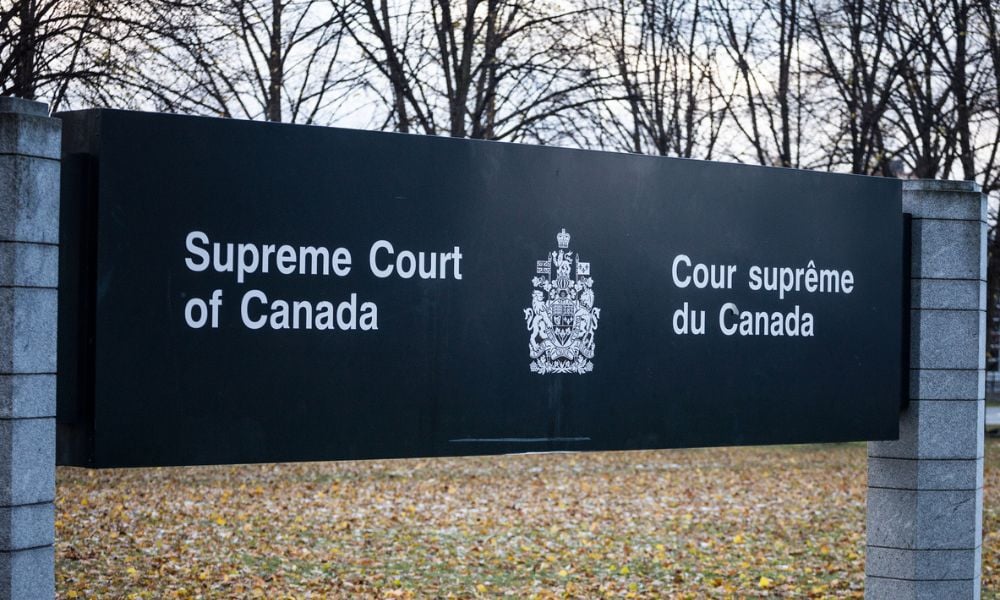Section 25 of the Charter protects Aboriginal rights from Charter challenge

While the Charter applies to a self-governing First Nation’s laws, the Vuntut Gwitchin First Nation government’s residency requirement for elected officials, which infringed a woman’s Charter-protected equality rights, is protected as an “other right or freedom” under s. 25, the Supreme Court of Canada has found.
In a split decision with three sets of reasons, the SCC dismissed the appeal. Cindy Dickson, a member of Vuntut Gwitchin First Nation (VGFN) in the Yukon, challenged her First Nation’s requirement that all elected council members reside within the community. If council members live elsewhere, they must relocate to VGFN within two weeks of election day. Dickson lived in Whitehorse, 800 km south of VGFN, and was unwilling to move because of her employment and the health needs of her son. She challenged the residency requirement under s. 15 of the Charter, which guarantees equality under the law.
The Yukon Court of Appeal found the residency requirement was a violation of s. 15, but also that the requirement was shielded by s. 25, which protects from Charter claims Aboriginal rights, Treaty rights, and “other rights or freedoms that pertain to the Aboriginal peoples of Canada.” The VGFN has signed a self-government agreement with the Government of Canada.
One of the questions in Dickson v. Vuntut Gwitchin First Nation, 2024 SCC 10 was whether the Charter applied to a law enacted by a self-governing First Nation. The SCC’s majority, consisting of Justices Nicholas Kasirer, Mahmud Jamal, Richard Wagner and Suzanne Côté, held that the Charter applies to the VGFN because it is a “government by nature” pursuant to s. 32(1) of the Charter. But while the residency requirement was a prima facie s. 15 violation, the majority found that it was an exercise of an “other” right or freedom pertaining to Aboriginal peoples. Dickson’s s. 15 claim “abrogated or derogated” from the “other” right, under s. 25, which protects “Indigenous difference,” creating an “irreconcilable conflict,” said the court.
“There are many positive findings in the decision, and we are very pleased the decision confirms that the Vuntut Gwitchin people hold Charter rights in relation to their Indigenous government,” says Bridget Gilbride, who acted for Dickson and is a partner at Fasken. “We are also happy that the decision recognizes that s. 25 does not operate as an absolute shield to those Charter rights, which was the effect of the decisions below.”
“Of course, we are disappointed with the result in this case, and agree with the reasons of Justice [Sheilah] Martin and Justice [Michelle] O’Bonsawin, and their view that individual Charter rights must be balanced against collective rights.
Gilbride says that the recognition in Dickson v. Vuntut Gwitchin First Nation that self-governing Indigenous nations can be governments under s. 32 of the Charter, and the affirmation of Indigenous citizens’ Charter rights, “is an advancement for Indigenous peoples in Canada.”
Justices Sheilah Martin and Michelle O'Bonsawin would have allowed Dickson’s appeal and declared the residency requirement of no force or effect. They agreed with the majority that the Charter applies to the requirement but disagreed that the requirement “falls within the ambit of s. 25.” The residency requirement does not protect “Indigenous difference” because it is not “aimed at recognizing the special status of Indigenous collectives within the broader Canadian state.”
Justice Malcolm Rowe would have dismissed Dickson’s appeal. He said that s. 32(1) governs who is bound by the Charter and states that it applies “only to the federal, provincial and territorial governments in respect of matters within their authority.”










